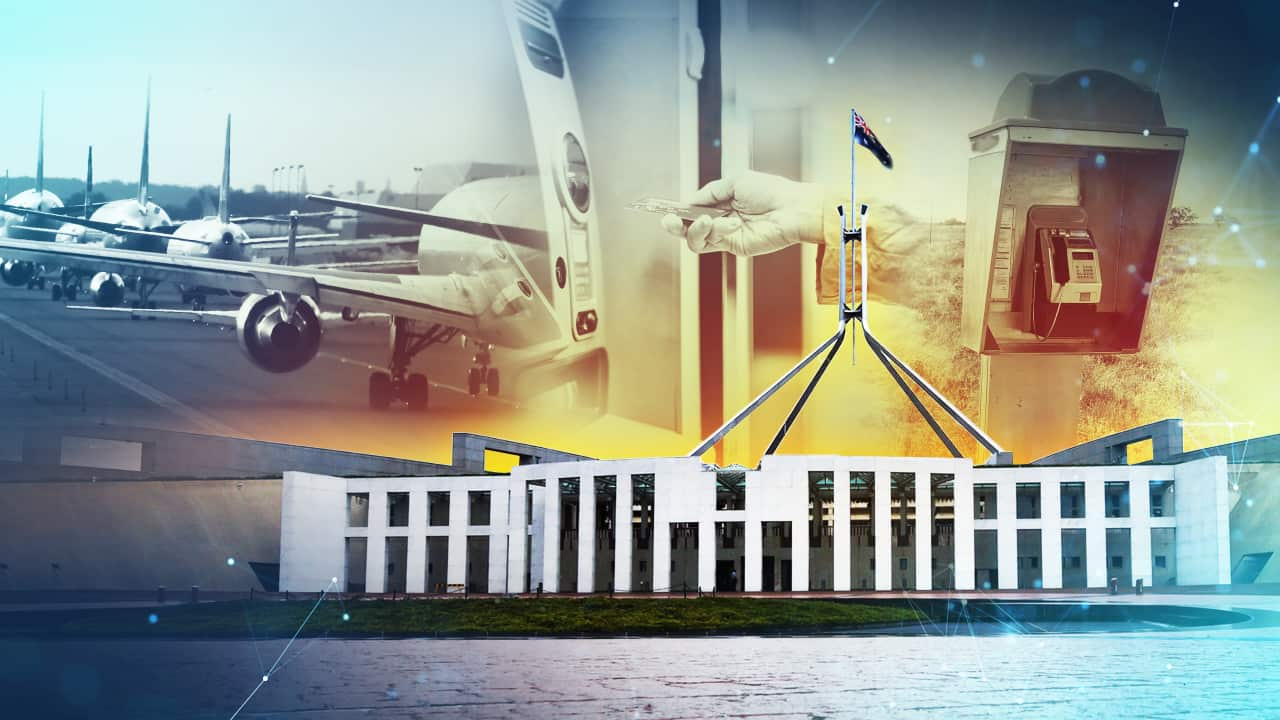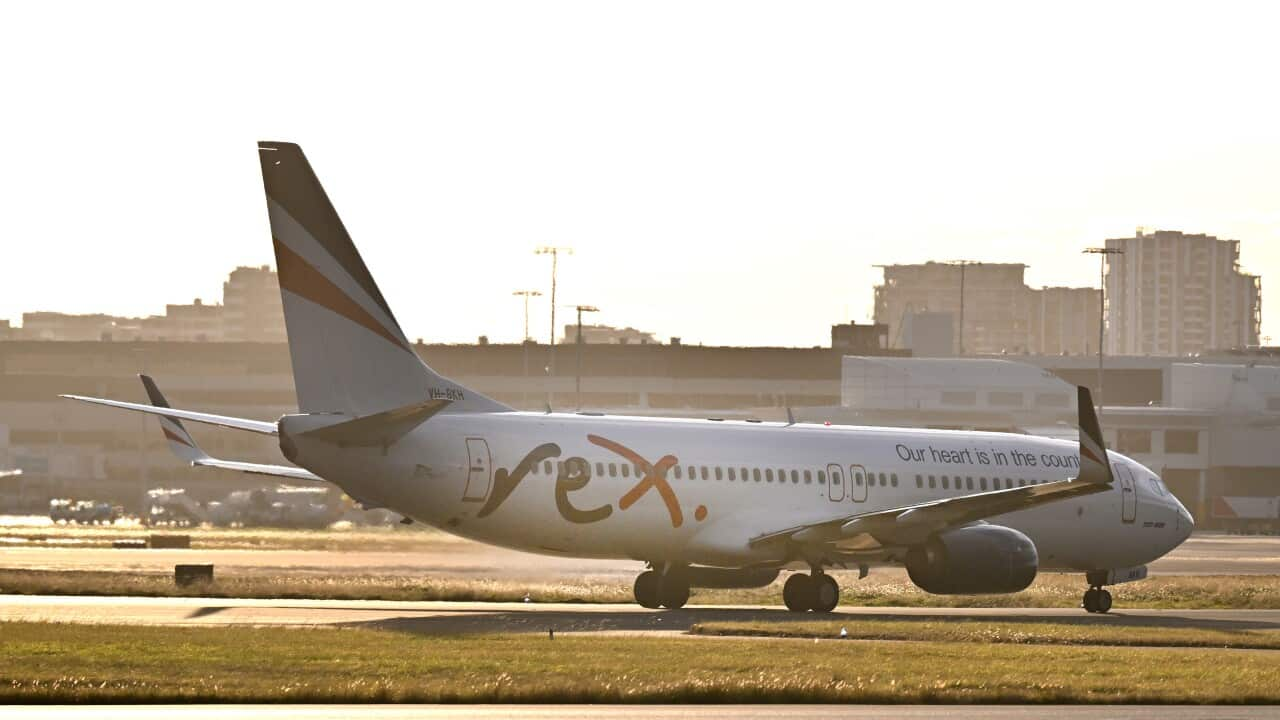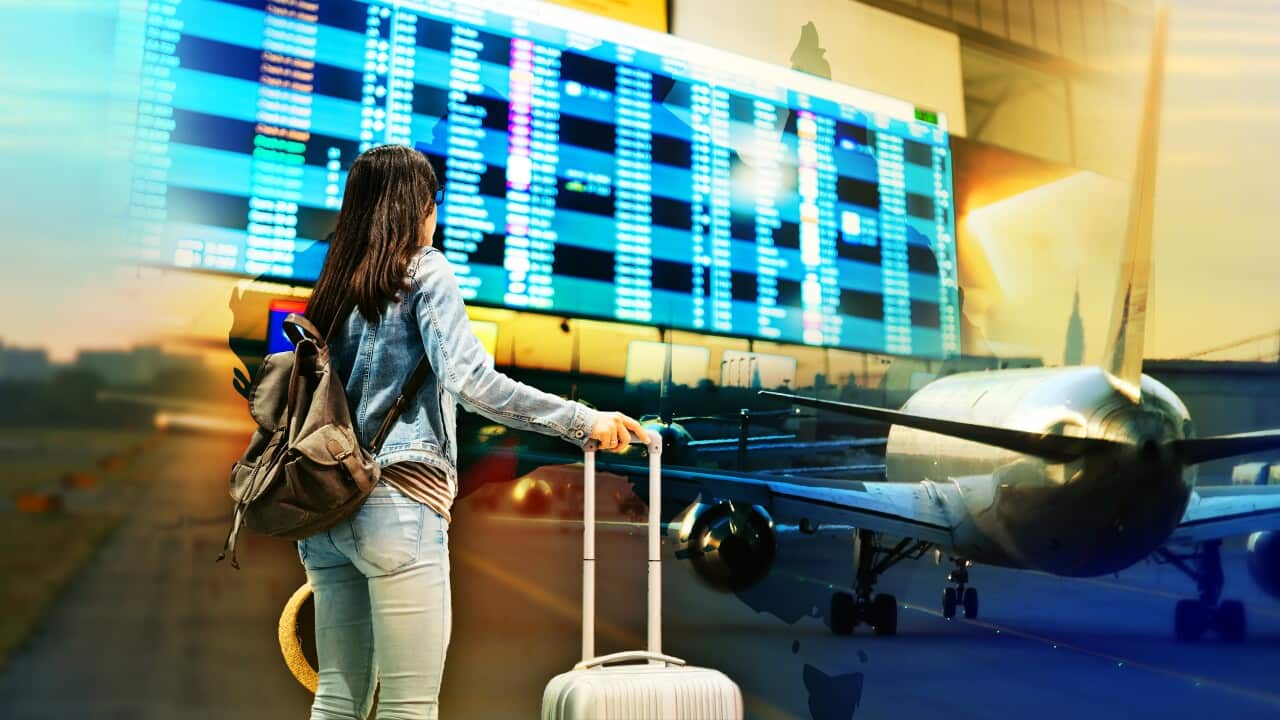The federal government could buy out embattled regional carrier Rex Airlines if a suitable private sector bidder isn't found.
Prime Minister Anthony Albanese said on Wednesday that the government would work with Rex administrators to find a buyer committed to providing ongoing service to the regions, value for money and good governance.
If that falls through, Labor will start working on contingency plans — including preparations for a potential Commonwealth acquisition.
"The collapse of Rex ... endangers access of these regional communities throughout Australia to our capital cities and to the connectivity that is so vital for the quality of life, so vital for these local economies as well," Albanese told reporters in Merimbula, on the NSW south coast.
This will be the second attempt to sell Rex after it.

A Rex Airlines plane at Sydney Airport. The federal government could throw the airline a lifeline if a potential buyer isn't found. Source: AAP / Mick Tsikas
Aviation plays 'a critical role', Albanese says
Albanese pointed to international examples where governments have stepped in, saying aviation plays a "critical role".
"The reason why governments have intervened in airlines around the world, whether you look at Singapore, BA (British Airways) got bailed out, Alitalia (Italy), Lufthansa (Germany), as well as of course the Middle Eastern Airlines, are all connected with their governments," he said.
"There’s a reason for that, because aviation plays a critical role in communities."
Federal Transport Minister Catherine King said it was evident through the first sales process that without government support, a private sale was unlikely to be successful.
"My department will work with successful bidders on an incentives package from the Commonwealth government," she said.
"It is absolutely critical for regional communities that Rex continues to operate and continues to provide those services."
A 'special case'
Professor Allan Fels, former chair of the Australian Competition & Consumer Commission (ACCC), described the potential move as a "last resort".
"It's not unusual for governments as a last resort to step in to ensure services to rural and remote areas of Australia and other countries," he said.
"Typically, governments — certainly Australian governments — will do almost anything, particularly before elections, to keep services running in [these] areas, even where they're not economically viable."
When it comes to Australia's broader history of privatisation — where governments have privatised portions of the public sector — he positioned the direction of Rex Airlines as "a bit of an outlier".
"But it's also a special case because it's servicing rural Australia. It's not the same as, say, a big airline like Qantas or Virgin being publicly owned."

Anthony Albanese said aviation plays a critical role in communities. Source: AAP / Mick Tsikas
Privatisation in Australia
In the 1990s, Australian governments — both Commonwealth and state — privatised a significant portion of the public sector, according to the Reserve Bank of Australia (RBA).
This trend increased, with Australia having one of the larger privatisation programs among Organisation for Economic Co-operation and Development (OECD) countries, followed in value by the United Kingdom.
Privatisation occurred in three main sectors — financial services, electricity and gas, and communication — with governments selling assets by offering equity to the public, and through trade sales.

Credit: SBS News
"Generally, privatisation is largely okay if the government-owned business faces competition once it's released into the market," he said.
The Committee for Economic Development of Australia (CEDA) has argued in a review that privatisation brings "mixed results". The Australia Institute argued in a 2024 analysis that the privatisation, deregulation and outsourcing of public services has "failed to provide economic or social returns to Australians".
Here are some of the notable examples in Australia:
Qantas
Should Rex be nationalised, it would be the first time a federal government has owned an airline in three decades after Qantas was privatised between 1992-93 and 1995-96.
Qantas merged with Australian Airlines in 1992, a government-owned domestic airline, before British Airways bought 25 per cent of the operation the following year. The remaining share was offered in a public float in 1995-96.
The trade sale raised $665 million, according to the RBA, with a further $1.45 billion made in a public float two years later.
Since the deregulation of airlines — where government restrictions on prices and routes were removed, and new airlines allowed to enter — there was a succession of operators that largely failed, Fels said.
On Wednesday, Deputy opposition leader Sussan Ley blamed the government's "failure of management" for allowing Rex to go under in the first place.
"Governments shouldn't own airlines," she told Sky News.
"Because that means that taxpayers own them and taxpayers pay for them."
Commonwealth Bank
Privatisation in Australia "started in earnest" with the sale of the first tranche of the Commonwealth Bank of Australia (CBA) in 1991, the RBA said in 1997.
At the time, it was an enterprise already operating in a commercial environment.
It was fully privatised between then and 1997-98 under the then-Keating government. Proceeds from sales in three portions totalled $8.1 billion.
Telstra
The sale of Telstra was a major privatisation that took place in 1997-98, with proceeds of a public float totalling $14.3 billion.
When both Telstra and Qantas were released onto the market, Fels said they did not face overwhelming competition.
"They were dominant," he said.
"Commonwealth Bank did face competition from day one, so the outcome was fairly competitive."
Among other notable privatisations was CSL Ltd, formerly the Commonwealth Serum Laboratories, which occurred in 1993-94, floating for $299 million.
It was one of the most profitable of the Commonwealth's businesses enterprises, according to a 1995 paper by the Australia Institute.
With additional reporting from the Australian Associated Press.



